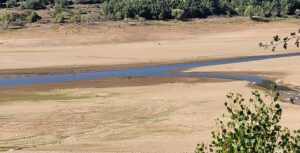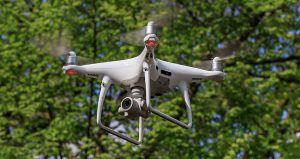The Netherlands and Belgium develop cross border water maps

-
 Adriaan van Hooijdonk
Adriaan van Hooijdonk
Share article:
Flemish and Dutch water professionals need uniform data and mapping material of cross-border water systems in order to deal effectively with floods and drought. Dozens of Flemish and Dutch water professionals came together on June 21 at the estate Bouvigne of the Dutch water board Brabantse Delta to exchange knowledge.
During this meeting the water experts concluded there is a lack of maps and data from cross border water systems. The existing maps are designed differently in both countries. The two EU Member States have to comply with the same European laws and regulations but the translation into national rules is not the same.
Language
Although Dutch and Flemish operators speak the same language (Dutch) their ‘water language’ is not equal. If they want to start working together more intensively this has to change. Developing a common water language is the one of the objectives of the Joint Cooperation Program for Applied Scientific Research (JCAR), established last year. Over the next five years, this programme will focus on improving cooperation in the field of flood and drought management and research to Accelerate Transboundary Regional Adaptation to Climate Extremes (ATRACE).
Improve water protection
Scientists investigate urgent issues, such as an early warning system, to improve flood forecasting, information exchange and alarms. They also identify shared risks, for example to jointly develop and carry out stress tests in order to improve water protection.
Field action required
Research and building knowledge are vital, but field action is also required. A good example is the Water-Land-Scape programme that was launched by the Flemish government in October 2017. Fourteen local coalitions, consisting of partnerships between farmers, local authorities, associations and companies, among others, carried out climate adaptation projects.
Water neglects administrative boundaries
Experts agreed that the Netherlands and Flanders face the same challenges. Both the causes and possible solutions regarding extreme weather are the same. Besides that water does not follow administrative boundaries. It does not read policy reports and birds, animals, water, nature, wet nature and the environment does not know what we are up to. It is logical that the EU is making laws that requires cross border cooperation.
Budgets
The Belgian budgets for water management are pale in comparison to what the Netherlands has to spend. This is partly due to a Dutch water board tax, that does not exist in Belgium. All experts are worried about the unprecedented speed at which climate change is taking place. In July 2021 floods led to 41 deaths in Wallonia the worst natural disaster in Belgium ever. During these summer floods there Belgium phoned The Dutch authorities to warn them for severe summer floods.
Smart measuring agreement
The Flemish Environment Agency and water board Brabantse Delta concluded the meeting by signing of a cooperation agreement for Water Quality Measurements. The parties agreed that they will jointly measure and continuously monitor water quality in the border area of the province of Antwerp and the Brabantse Delta. This concerns the water quality of, among others, the river de Mark, Aa or Weerijs and the Kleine Aa-Molenbeek. The new agreement followed the successful ‘Smart Metering Together’ pilot that was carried out around the Mark in 2022.















